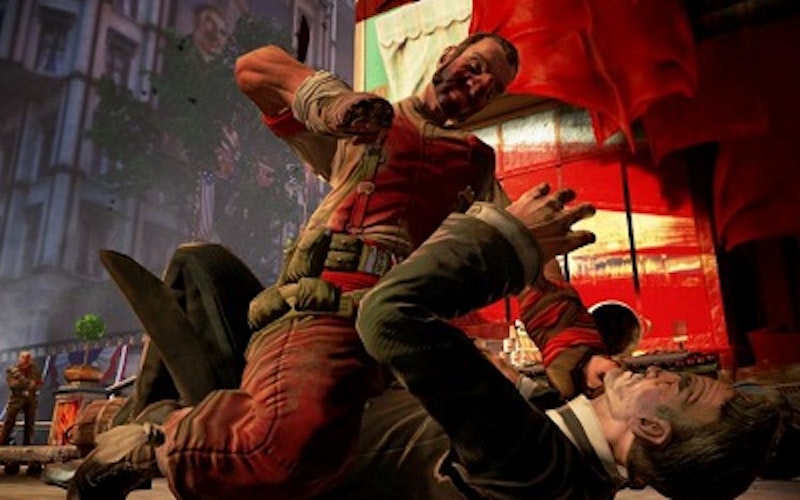
Games
Playing BioShock Infinite while Mom watches
After watching me play 10 minutes of BioShock Infinite, my mother asked, “What makes this game different from all the other games where you shoot people?” I wanted to tell her the game illustrates how religion can be used as a tool to corrupt and subjugate others. I wanted to tell her the game exposes the dangers of American exceptionalism. I wanted to tell my mother these things because I wanted to believe BioShock Infinite is different.
We begin BioShock Infinite playing as Booker DeWitt, a Pinkerton in the early 1900s who has been hired for a mysterious job. We take a boat to an abandoned lighthouse with a note on the door: “Bring us the girl, wipe away the debt.” We are then surrounded with Christian imagery as we climb the lighthouse. A sign says “Of thy sins, I shall wash thee” and we look into a baptismal font and see Booker’s face. Atop the lighthouse, we find our means of traveling to Columbia, the city in clouds where the game is set. When we land in Columbia, we find stained-glass portraits of a man known as The Prophet promising to lead the people of Columbia to a “New Eden” and a priest inviting us into the waters of baptism. Infinite seems to be a game about atonement and new birth.
Upon leaving the sanctuary in which Booker was baptized, we come upon a garden with statues of founding fathers Jefferson, Washington and Franklin. People are invoking their names in prayer as if they made up some sort of strange patriotic trinity. We then happen upon a fair in which we quickly discover that the good Christian folk of Columbia are not only worshipers of America, but deeply racist. Booker wins a raffle at the fair and his prize is the chance to throw a baseball at an interracial couple. Given America’s history of slavery and ideals like Manifest Destiny - and how Christianity was often abused to lend support to them - these images give players a disturbing vision of what the United States might have become.
Despite Infinite’s lack of nuance with regard to Christianity, I would have been happy if its central aim was to critique religion.
At best, this setup is a rather tired critique on religious extremism. At worst it is a caricature. Infinite never gives us a foil. There is no Martin Luther King Jr. or William Wilberforce. No Christians who love their neighbor and object to the inhumane ideology of The Prophet.
Despite Infinite’s lack of nuance with regard to Christianity, I would have been happy if its central aim was to critique religion. Such a critique would at least give Christians an opportunity to confront how our ideology has been abused in the past and could be abused in the future. However, BioShock Infinite is not a game about the dangers of religion. What I’ve described so far covers the first hour of the game. The majority of the following 15 hours are spent shooting people.
During the 10 minutes my mother watched, I plunged my “sky-hook” into the skulls of a dozen women and men, shot crows out of my hands to devour another dozen and finished them off with machine guns and rockets. Once my mother saw me perform such acts, I could not bring myself to claim that Infinite was any different from the many shooters that preceded it. Truthfully, I suspect it’s a game about shooting people because such games sell. Much like Infinite’s critique of religious extremism, intensely violent first person shooters are easy.
I still believe in the positive potential of video games. I believe games can challenge our thinking on important issues, give us a valuable window into the experience of others and even make the world a better place. But I also believe that the many games like BioShock Infinite that are obsessed with gratuitous violence are stunting that real potential.
Topics: Games, Culture At Large, Arts & Leisure